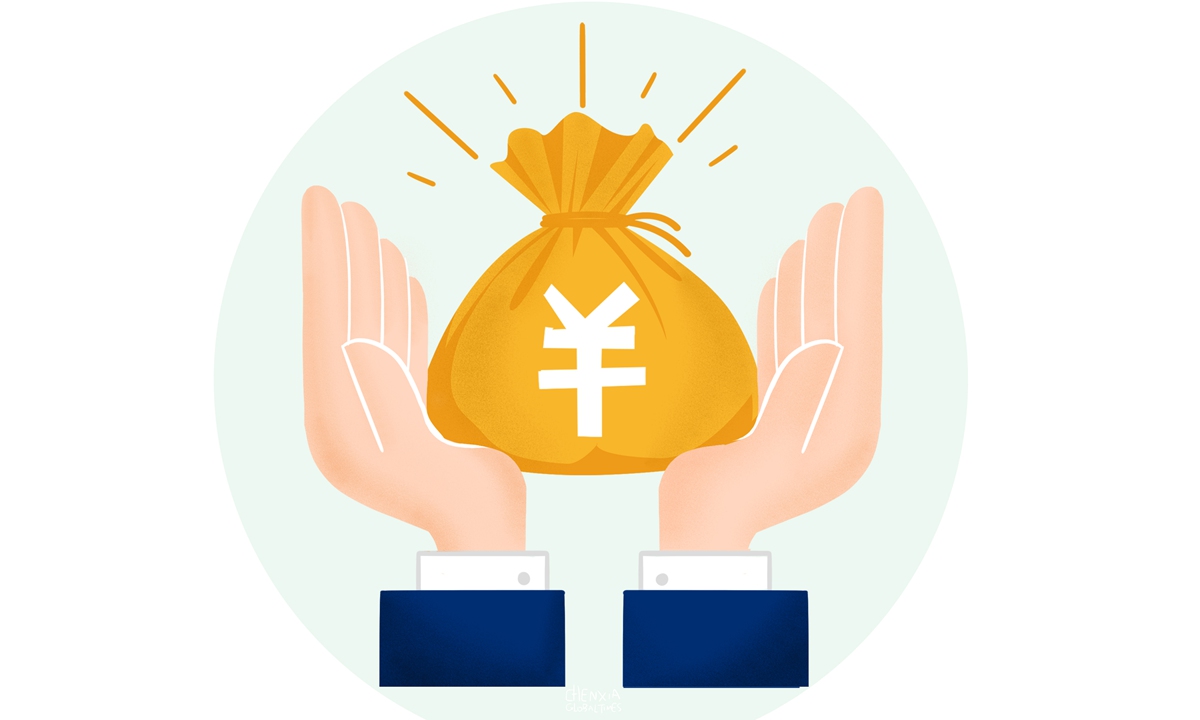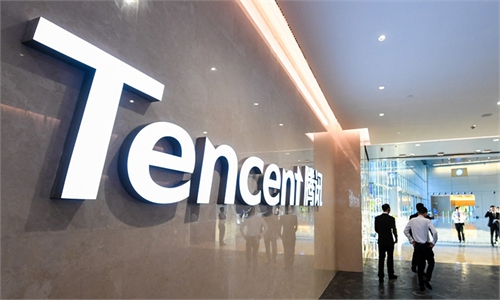COMMENTS / COLUMNISTS
Common prosperity calls for better policy design, charitable contribution

Illustration: Chen Xia/GT
Many households in China have become much better-off compared with two decades ago thanks to rapid and broad-based economic growth, but inequality of household income and wealth has also expanded. As a socialist country, the Chinese authorities are committed to the equitable welfare growth for the majority of people, while at the same time, encouraging a small number of wealthy entrepreneurs and financiers to contribute more to charitable initiatives.
Last week, China's central government announced it will vigorously promote a "common prosperity" agenda and vowed to leave no one group behind. Many observers took this as a signal for more institutional arrangements and new reforming programs on income redistribution to be put in place soon.
The government's agenda will include vigorously expanding the size of China's middle-class, increase the earnings of the low-income earners, adjust excessive incomes of the super-rich, while cracking down upon illicit income. The common prosperity initiative will be another great milestone for China, after it largely eliminated poverty at the end of 2020.
The government said it will actively encourage high-income groups to give back to society. For an extended time, China has seen an explosion of internet-based platform businesses, benefiting a small number of tech tycoons at the expense of ordinary wage earners who often work day and night for those platforms.
As the huge profits of the platforms are mostly driven by middle and low-income internet users, it is reasonable to expect technology companies and those billionaire and millionaire bosses to make a greater contribution to society and becoming partners in achieving common prosperity.
On Wednesday, Tencent, one of the largest and most profitable internet platforms, known for its online news, advertising, messaging, chat-room, gaming and massively popular Wechat Pay, announced a plan to invest 50 billion yuan ($7.7 billion) to help promote the government's common prosperity initiative. In addition, the tech giant has agreed to leverage its advanced internet and digital technology to assist urban low-income people and propel rural revitalization.
Tencent expressed its aspiration to develop and prosper together with the society as a whole. Other leading internet platforms and technology companies in the country are likely to follow suit.
To accelerate common prosperity, it is necessary for the central government to work out a set of mandatory regulations that require all businesses - state-owned, foreign-invested and private-owned companies - to ensure annual wage increases for their employees, provided the businesses' yearly revenues and profits are able to support doing so. Actually, these companies' annual profits have been running on the fast lane during the past five years, thanks to explosive consumption growth by all Chinese households.
Some internet platforms, like delivery service Meituan Dianping and ride-hailing service Didi Chuxing, should be made legally bound to improve income distribution for their sizable workforces and network of partners. The previous practices of digital giants squeezing or exploiting their workers' benefits must be stopped and rectified.
Government regulators are also likely to consider overhauling the individual income taxation system by significantly raising the taxation threshold from 5,000 yuan to 8,000 yuan or 10,000 yuan of monthly income - a move that will largely benefit the low-wage earners. Meanwhile, the government could increase rates of taxation on people who earn 100,000 yuan or more per month. Experts see this move as an important and effective measure to redistribute incomes and foster greater societal equality.
Recently, the government enacted sweeping new regulations to outlaw private and profit-oriented tutoring businesses, which will greatly reduce the burden on families to support their children's education, and prevent private capital from entering education sector and siphoning off household budgets of hardworking families. This measure, together with the government's resolve to balance housing prices, is believed to aid the "common prosperity" effort.
Many have flagged the importance of China speeding up reforms of the country's social security system, including the medical care regime, jobless insurance, maternity leave, and the aged care pension system, providing certainty and stability to more across China's diverse population.
For instance, as many as 285 million migrant Chinese workers from rural parts of the country remain insufficiently protected should they become ill, give birth, or retire, data from the National Bureau of Statistics indicated.
To help shore up the welfare of these people and tens of thousands of the aged and under-aged who are "left behind" in the countryside, donations from Tencent, ByteDance, Pinduoduo, Ant Group, ICBC, China Life Insurance and other tech and financial giants, as well as individual Chinese billionaires and millionaires, like Alibaba founder Ma Yun, Xiaomi CEO Lei Jun, CATL founder Zeng Yuqun and Nongfu Spring CEO Zhong Shanshan and their billionaire lieutenants, could be used to assist them.
China's modern philanthropic sector has grown in the past 15 years, particularly since 2008 which was a turning point for charitable-giving in the country, spurred by the Beijing Olympic Games and the devastating Sichuan earthquake which killed more than 87,000 people.
Only when the government fine-tunes its taxation and income distribution policy, and inspires the wealthy companies and super-rich entrepreneurs to donate more to the society, can China's family income divide be narrowed and "common prosperity" be gradually realized.
The author is an editor with the Global Times. bizopinion@globaltimes.com.cn



